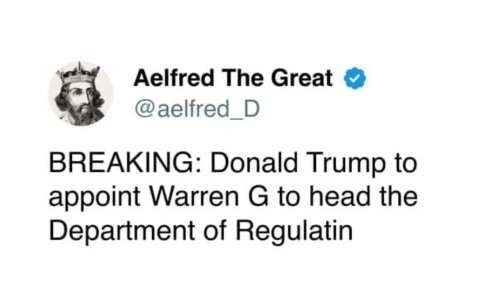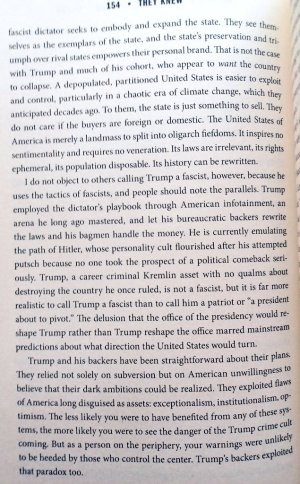Theresa May says she will change human rights laws if they "get in the way" of tackling terror suspects.
She said she wants to do more to restrict the freedom of those posing a threat and to deport foreign suspects.
The UK could seek opt-outs from the European Convention on Human Rights, which it has abided by since 1953.
Labour said the UK would not defeat terrorism "by ripping up basic rights". The Lib Dems said it was a "cynical" move ahead of Thursday's election.
The Conservatives have faced criticism over police cuts and questions about intelligence failures following the terror attacks in London and Manchester.
Speaking after Saturday's London attack, Mrs May said "enough is enough" and that "things need to change" in the terror fight.
Addressing activists in Slough on Tuesday evening, she did not make any specific new policy proposals but said she envisaged longer prison sentences for those convicted of terrorist offences and making it easier for the authorities to deport foreign terrorist suspects back to their own countries.
She added: "And I mean doing more to restrict the freedom and movements of terrorist suspects when we have enough evidence to know they are a threat, but not enough evidence to prosecute them in full in court.
"And if our human rights laws get in the way of doing it, we will change the law so we can do it."
[h2]Can the UK get opt-outs from human rights laws?[/h2][h2]By legal affairs correspondent Clive Coleman[/h2]
As a party to the European Convention on Human Rights, the UK is permitted under Article 15 to "derogate", or depart from, parts of the Convention in limited circumstances.
This can only happen in "time of emergency", ie there must be a war or other public emergency "threatening the life of the nation".
If that is the case, the UK can take measures derogating from its obligations, but only to the extent strictly required by the situation.
Any measures must not breach the UK's other obligations under international law. The government must keep the secretary general of the Council of Europe fully informed of the measures and its reasons for imposing them.
Derogation can be challenged in domestic courts and the European Court of Human Rights in Strasbourg.
The UK derogated from Article 5 of the ECHR - the right to liberty and security - during the troubles in Northern Ireland.
In 1979, the European Court of Human Rights found the circumstances of Northern Ireland and the use of preventative detention of terrorist suspects without trial met the criteria for derogation.
In an interview with
The Sun, Mrs May said she would also consider extending the time suspects could be held without charge to 28 days. The limit was reduced to 14 days in 2011 under the Conservative-Lib Dem coalition government. Mrs May was home secretary at the time.
"We said there may be circumstances where it is necessary to do this," she told the newspaper. "I will listen to what they [the police and security services] think is necessary for us to do."
The Conservative manifesto committed the party to remaining in the European Convention on Human Rights - which is separate to the EU and which the UK helped to establish after World War Two - for the whole of the next Parliament.
Conservative sources say they would not withdraw from the ECHR but would seek temporary opt-outs called "derogations" from certain aspects.
This could possibly include Article 5 - which guarantees individuals' rights to liberty and security and the right to a trial "within a reasonable time", while protecting against unlawful arrest and detention.
During last year's Conservative leadership campaign, Mrs May said she personally backed leaving the ECHR, saying it made it harder to deport terror suspects and criminals. But she later said she did not believe there was enough support in Parliament for the move.
[h2]'Cynical'[/h2]
The Conservatives have said they will reconsider the UK's human rights legal framework after leaving the EU but that the 1998 Human Rights Act will remain in place until that time. The party has long proposed replacing it will a British Bill of Rights.
Sir Keir Starmer, the former director of public prosecutions who is now Labour's shadow Brexit secretary, told Today the Human Rights Act "had not got "in the way of what we were doing" during his many years prosecuting serious crime.
He warned against "throwing away the very values that are at the heart of our democracy and everything we believe in".
Labour's leader, Jeremy Corbyn, said laws were already in place to deal with people, including foreign nationals, who presented a threat and that the government must always act "within the law".
Former Lib Dem leader Nick Clegg said the PM was making a "very cynical" attempt to appeal to UKIP voters, telling the BBC "attacking the principles of human rights legislation is not the right way to keep us safe".
He denounced the "explosive claim, free from any evidence, that the problem lies with human rights legislation", saying the prime minister had a "track record" of making "ludicrous" claims about the impact of the laws.
He said ministers' focus should be on the fact one of the London Bridge attackers had been on a Italian terror watchlist - and whether this information was properly shared and acted upon.
Linking Brexit to security, he added: "I think we need to enhance our use of those EU-wide databases which are proving to be the most sophisticated pool of information about would-be criminals."
"It would be illegal for 27 other countries in the European Union to share data with us if we in the future, under Theresa May's plans, rule out abiding by European Union data protection rules."
UKIP has already backed extending pre-charge detention to 28 days. Their immigration spokesman Jon Bickley said the UK had to "stop being so tolerant of other people's intolerance".







 at inbred rednecks crying about Trudeau and Obama's expensive "fine dining" (damn, they have some low standards, cause all I saw was a casual restaurant) which apparently they are paying for using money stolen from citizens.
at inbred rednecks crying about Trudeau and Obama's expensive "fine dining" (damn, they have some low standards, cause all I saw was a casual restaurant) which apparently they are paying for using money stolen from citizens.

































